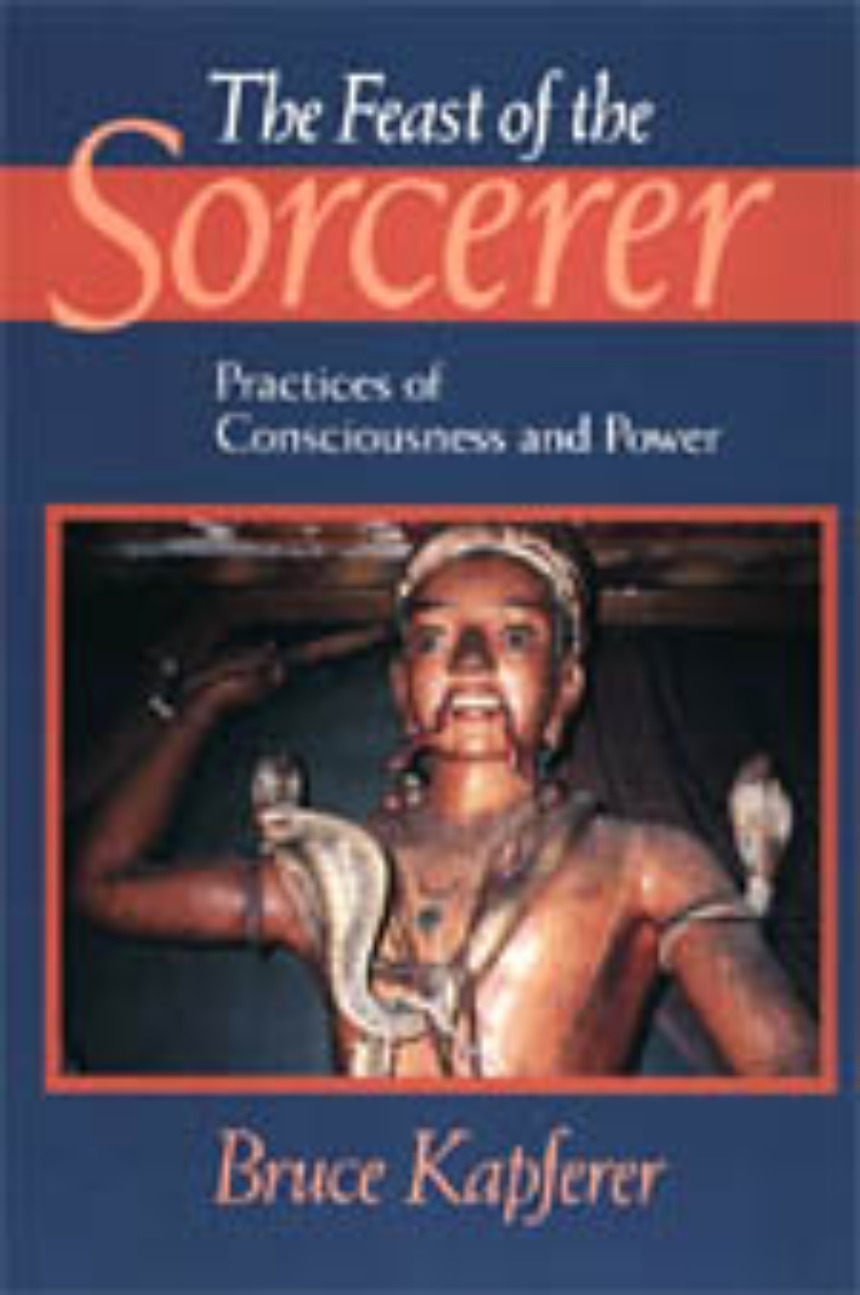The Feast of the Sorcerer
Practices of Consciousness and Power
Sorcery has long been associated with the "dark side" of human development. Along with magic and witchcraft, it is assumed to be irrational and antithetical to modern thought. But in The Feast of the Sorcerer, Bruce Kapferer argues that sorcery practices reveal critical insights into how consciousness is formed and how human beings constitute their social and political realities.
Kapferer focuses on sorcery among Sinhalese Buddhists in Sri Lanka to explore how the art of sorcery is in fact deeply connected to social practices and lived experiences such as birth, death, sickness, and war. He describes in great detail the central ritual of exorcism, a study which opens up new avenues of thought that challenge anthropological approaches to such topics as the psychological forces of emotion and the dynamics of power. Overcoming both "orientalist" bias and postmodern permissiveness, Kapferer compellingly reframes sorcery as a pragmatic, conscious practice which, through its dynamic of destruction and creation, makes it possible for humans to reconstruct repeatedly their relation to the world.
Kapferer focuses on sorcery among Sinhalese Buddhists in Sri Lanka to explore how the art of sorcery is in fact deeply connected to social practices and lived experiences such as birth, death, sickness, and war. He describes in great detail the central ritual of exorcism, a study which opens up new avenues of thought that challenge anthropological approaches to such topics as the psychological forces of emotion and the dynamics of power. Overcoming both "orientalist" bias and postmodern permissiveness, Kapferer compellingly reframes sorcery as a pragmatic, conscious practice which, through its dynamic of destruction and creation, makes it possible for humans to reconstruct repeatedly their relation to the world.
388 pages | 18 halftones, 5 line drawings | 6 x 9 | © 1997
Anthropology: Cultural and Social Anthropology
Asian Studies: South Asia
Table of Contents
Preface
1: Introduction: Sorcery in Anthropology
2: Gods of Protection, Demons of Destruction: Sorcery and Modernity
3: Victim and Sorcerer: Tales of the City, the State, and Their Nemesis
4: The Suniyama: The Conquest of Sorcery and the Power of Consciousness
5: The Suniyama: The Conquest of Sorcery and the Power of Consciousness
6: Sorcery and Sacrifice: Victims, Gifts, and Violence
7: Sorcery’s Passions: Fear, Loathing, and Anger in the World
8: Faces of Power: Sorcery, Society, and the State
9: Thus, Man Is Always a Wizard to Man
Notes
References
Glossary
Index
1: Introduction: Sorcery in Anthropology
2: Gods of Protection, Demons of Destruction: Sorcery and Modernity
3: Victim and Sorcerer: Tales of the City, the State, and Their Nemesis
4: The Suniyama: The Conquest of Sorcery and the Power of Consciousness
5: The Suniyama: The Conquest of Sorcery and the Power of Consciousness
6: Sorcery and Sacrifice: Victims, Gifts, and Violence
7: Sorcery’s Passions: Fear, Loathing, and Anger in the World
8: Faces of Power: Sorcery, Society, and the State
9: Thus, Man Is Always a Wizard to Man
Notes
References
Glossary
Index
